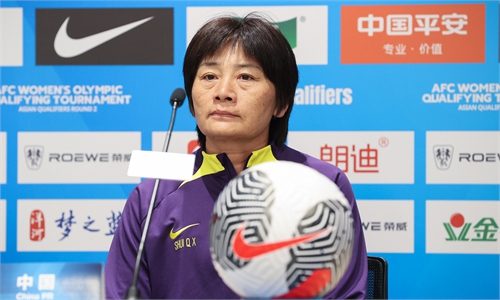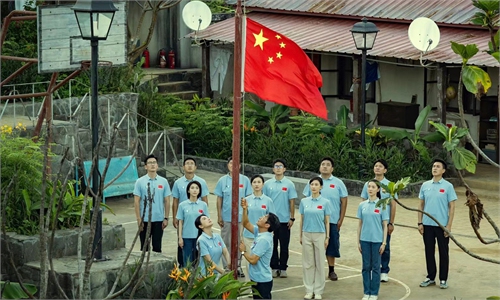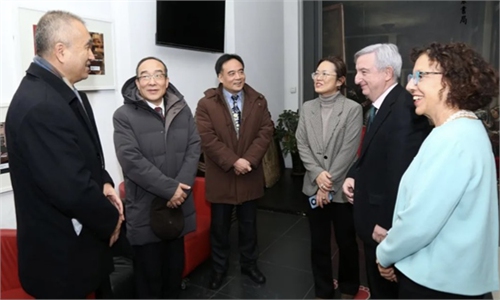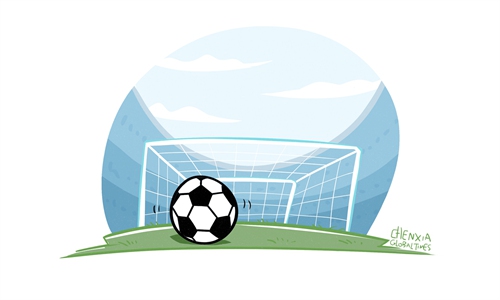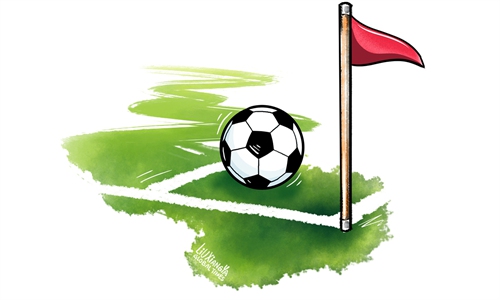ARTS / CULTURE & LEISURE
Will 2024 season herald Chinese soccer’s redemption?
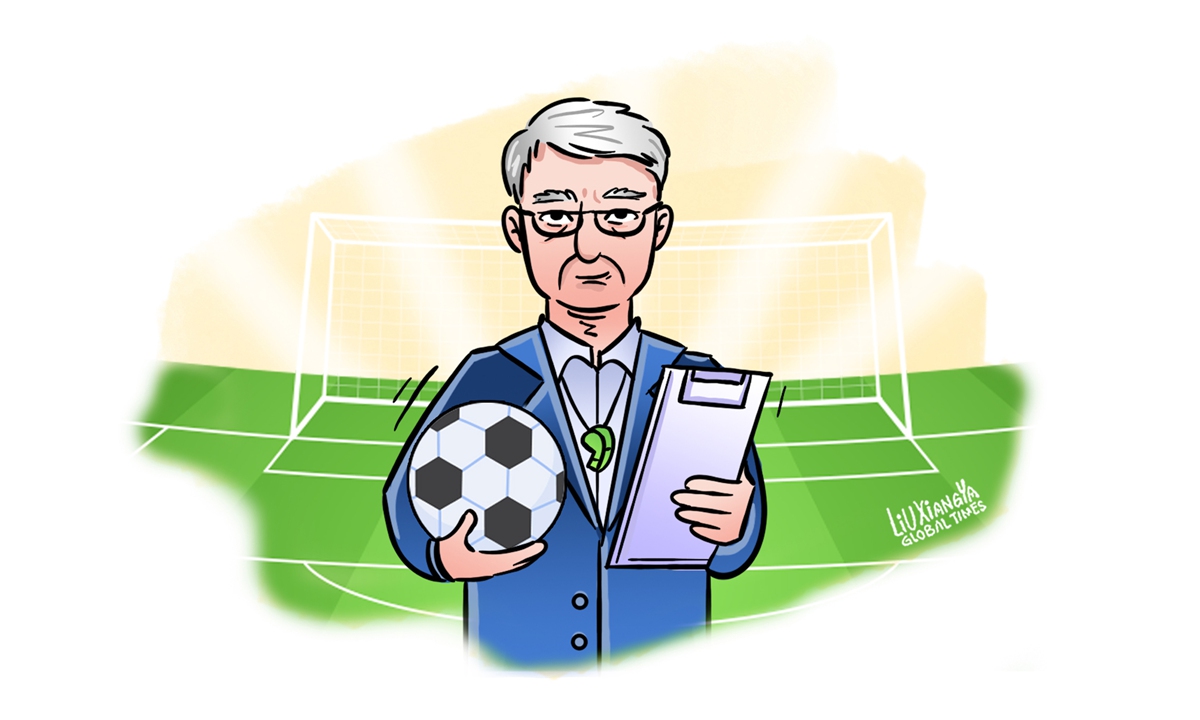
Illustration: Liu Xiangya/GT
The 2024 season of Chinese soccer started with fresh new faces as Shanghai Shenhua were crowned as the Chinese FA Super Cup champions on Sunday after defeating their Shanghai fellows Shanghai Port 1-0.
This match was about more than just a cup. The game, which marks the first Shanghai derby at the Super Cup, saw some new figures, including Russian coach Leonid Slutsky, who took charge of Shenhua, and Australian Kevin Muscat, who replaced Spanish coach Javier Pereira of the Port team at the end of December.
It was a showcase of the talents and ambition that likely will define the upcoming Chinese Super League (CSL) season. With both teams boasting a mix of domestic stars and international signings, the Shanghai derby is a microcosm of the league's growing stature.
One of the most significant subplots of the match was the presence of Branko Ivankovic, the newly appointed head coach of the Chinese national team. Just a day after taking the reins, Ivankovic was in the stands, carefully observing the players who could shape the future of Chinese soccer.
Soccer holds a special place in the hearts of tens of millions of Chinese fans, though the national teams were, as usual, underachieving. In recent years, Chinese soccer has been on a rollercoaster ride of highs and lows. From the dizzying heights of record-breaking transfer fees to the depths of corruption scandals and match-fixing allegations, the sport has experienced its fair share of turbulence. But amid the chaos, there are signs of hope and renewal.
The CFA is acutely aware of the need for comprehensive reform within the sport. From grassroots development to elite coaching, from youth academies to national team management, every aspect of Chinese soccer is undergoing scrutiny and overhaul since new chief Song Kai took charge of the governing body in October.
One of the key areas of focus for the CFA is the fight against corruption and match-fixing. In recent years, Chinese soccer has been rocked by a series of scandals that have tarnished the sport's reputation and eroded public trust.
The CFA is determined to root out corruption and restore faith in the integrity of Chinese soccer.
The CFA's disciplinary chief Liu Yi recently emphasized the importance of learning from past mistakes and implementing meaningful changes. With a zero-tolerance policy toward corruption and a commitment to transparency and accountability, the CFA is laying the groundwork for a brighter future for Chinese soccer.
After a disappointing run for the national team at the Asian Cup, the CFA decided not to extend its contract with Serbian Aleksandar Jankovic as the team failed to grab a win in the group stage. The new coach Ivankovic is the sixth national team coach in five years.
However, Ivankovic is not new to Chinese soccer as he had a stint with CSL giants Shandong Taishan from 2009 to 2011, during which he led the team to win the league title in 2010.
The challenges facing Ivankovic are daunting. With the 2026 World Cup Asian qualifiers on the horizon - two games in March and another two in June - he has a limited amount of time to instill his tactical philosophy and mold a cohesive unit out of a disparate group of players.
Fans are also questioning whether Ivankovic is the right man for the role, as his recent record of coaching the Oman national team was far from convincing as the team failed to win a match in the group stage at the Asian Cup - the same as Jankovic's record.
If Ivankovic fails to live up to the fans and the CFA's expectations for the next round of the World Cup Asian qualifiers, an embarrassing situation will take place: The Chinese national team will have no major international games for two years.
Chinese soccer is at a crossroads, torn between the lure of big money and the need for sustainable development. As the new season kicks off, there's a sense of optimism in the air, a feeling that Chinese soccer is on the cusp of something special.
It was Ivankovic's former team Shandong that brought some fresh positive news to Chinese soccer, as they qualified for the Asian Champions League quarterfinals after seeing off Kawasaki Frontale 4-2 on Tuesday with a 6-5 aggregate victory thanks to a dramatic last-minute goal.
The potential for growth and development of Chinese soccer is immense, but it must be balanced against the temptations of commercialization and short-term gains.
As the new season unfolds, there is a sense of anticipation and excitement, fueled by the belief that Chinese soccer is on the brink of something transformative. With perseverance, determination and a commitment to reform, the sport still has the potential to reclaim its place on the domestic and international stages, and inspire generations to come.
The author is a reporter with the Global Times. life@globaltimes.com.cn
